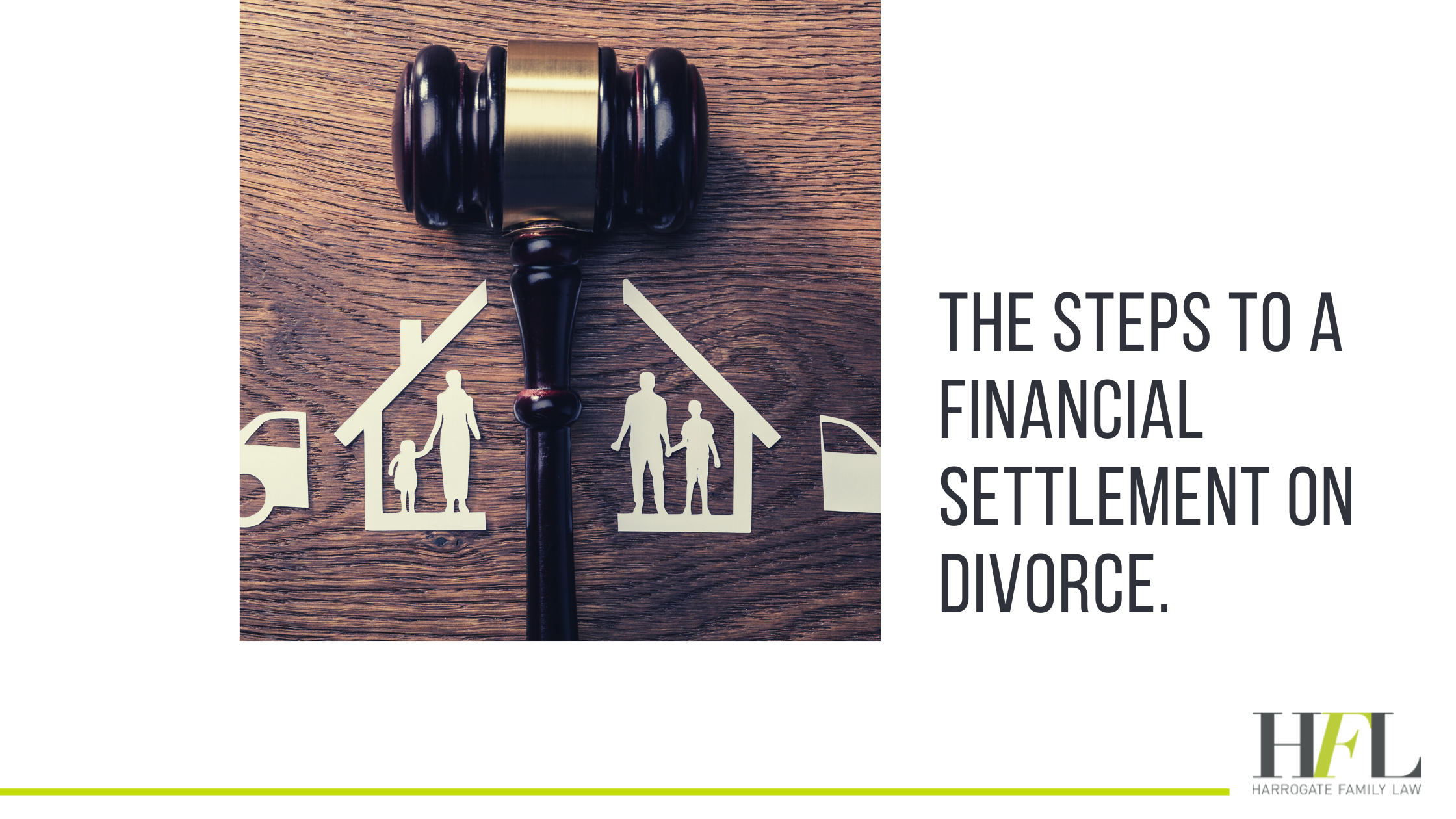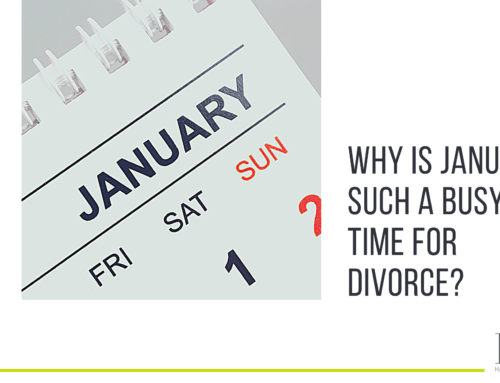During a divorce, agreeing a financial settlement is an important milestone. But how do you get to that point?
In some cases, couples are able to come to an agreement without going to court, in others, making an application to the court is the right path to take. Here we’re taking a look at what happens when a matter goes before the court, and some of the steps your solicitor will take on your behalf*.
Why you need a divorce solicitor
First thing’s first; whilst it’s possible to represent yourself during court proceedings in relation to the finances, it’s not advisable. There’s a lot to take in. From the sheer number of forms to be completed and sent to the court, to the very often complex negotiation involved. That’s before considering the emotional toll that all of this can take.
Having a divorce solicitor to guide you through the process and take the load for you is the best way to ensure you’re getting an outcome that’s both fair, and futureproof.
When might it be best to use the court?
Many people feel as though they should try to sort things out themselves without involving the court. Before attempting this, you need to make sure you won’t really regret not starting the court framework earlier. For some, such as those with a narcissist ex, using the court from the outset can be quicker and cheaper.
If your ex is likely to delay, not provide a full picture of their finances or be unreasonable when it comes to the negotiations, you could spend a lot of money and waste a lot of time and still be at a stalemate. You could have the best lawyer in the world at negotiation but if your ex is going to be unreasonable and isn’t prepared to agree to a fair outcome, outside of the court process you are limited to what your ex is prepared to accept (which might have no legal basis and might be unfair to you).
The work we will do for court proceedings is exactly the same as what we would do outside of court. The only difference is the requirement to actually attend court hearings.
If we’re making good progress with the negotiations, then we can write to the court to ask for the court hearing to be postponed to give us more time to reach an agreement (it would be up to the Judge whether to grant that request – but it is likely they will). The court framework should not be seen as a hostile step. It should be viewed as a safety net to guarantee the finances are resolved fairly and swiftly.
Making an application
If it’s been decided that the court framework is right for you, then the first step is to give notice of your application for a financial order. To do this, your solicitor will submit a document known as the Form A to the court.
So what happens next? The court will issue a timetable up to and including the first court hearing, which is called the First Appointment.
The Form E
The first step is for both spouses to complete a financial statement called a Form E. This is a document detailing every aspect of your financial situation, including things such as: property, pensions, earnings, debts, expenditure and any savings you have.
The court sets a date by which the Forms E should be lodged with the court and copies exchanged. This is 5 weeks before the First Appointment. Your solicitor will help you present the information in your Form E in a way that enables them to negotiate the best financial settlement for you. They will ensure you don’t hinder yourself e.g by pitching your expenditure or housing needs at the wrong level, by valuing assets at the wrong level or by missing pension or tax issues.
Once the Forms E have been exchanged further documents need to be prepared, lodged with the court and copies exchanged with your ex. Your Solicitor will prepare these for you. They will ensure a request is made if anything further is necessary to clarify your ex’s financial circumstances. They will also advise you on whether expert evidence is necessary, from say, a property valuer, a pensions expert, a forensic accountant or medical consultant.
What if we reach an agreement?
If you and your ex-spouse have reached a financial agreement that you’re both happy with, your Solicitor will prepare a legal document to formalise the agreement called a Consent Order. It will then be sent with a summary of the finances for the court to make it legally binding.
The court will consider all of the details provided and decide whether or not the agreement is a fair one in the circumstances. The court usually makes the agreement legally binding without the need to attend a court hearing and the rest of the process set out below won’t apply to you.
The first court hearing
It is not common to be able to reach an agreement before the first court hearing. Usually further information is needed from your ex. You may also need some expert evidence to be required before you can make a fully informed decision about what you want from the financial settlement.
At the first court hearing, the judge will decide what information you’ll each need to provide, and whether any expert evidence should be obtained, in order to reach a fair financial settlement.
Both you and your ex-spouse will be required to attend, along with your legal representative. At the moment most hearings are taking place virtually. Your legal representative will do all the talking on your behalf so there is nothing to worry about.
What happens after that?
Further information and expert evidence, if required, is obtained and proposals can be made to try to reach an agreement. If you still can’t reach an agreement, you move to the next Court hearing which is called a Financial Dispute Resolution appointment (FDR).
The Financial Dispute Resolution Meeting
This is an opportunity to try to agree terms of settlement with your ex with the help of a judge. The judge’s role on this occasion is not to impose any terms of settlement. The judge discusses the issues and your respective proposals and provides an opinion based on his or her knowledge of your case and their experience of dealing with other cases.
This appointment is “without prejudice” which means that the negotiations cannot be referred to later if an agreement is not reached. It is an opportunity to have a frank discussion about what you want to achieve and hopefully be able to reach a settlement. If an agreement can be reached, the Judge can approve these terms of settlement so that they can be incorporated into a court order.
If an agreement cannot be reached the judge will give case management directions to progress the case to a final hearing and the FDR judge, who has been involved in the negotiations, will play no further part in your case.
The Final Hearing
Very few cases get to this stage. We are usually able to help people negotiate agreements at an earlier stage. However, if you cannot agree on the division of your money, the Judge at this hearing will decide the division for you and make an order.
The Judge will not make the decision lightly, he or she will read all of the information in your case and will hear evidence from both you and your ex before making their decision. The hearing usually lasts for one day but can be longer.
It’s very important to remember that at a final hearing, the judges’ decision is just that – final. The outcome may be very different to what you or your ex-spouse may have been hoping for.
How long does it take?
If an agreement can be reached, it depends on you and your ex how long it takes you to agree. If the court is being asked to approve an agreement and make it into an order this can take between 1 and 3 months generally.
If a financial application is made to the court the financial proceedings are usually concluded within 5 to 10 months, if an agreement can be reached without requiring a final hearing. If a final hearing is required it can be 8 to 18 months.
The timescale depends on many factors and we will be able to give you more specific information for your situation.
How can we help?
It’s absolutely vital to know that reaching a financial agreement that’s fair and appropriate in the circumstances isn’t easy. Is your ex being truthful in their disclosure? Even if a settlement looks as though it will work fine for you right now, is it future proof, providing everything that you need not just for today, but for tomorrow?
If you’ve got further questions, Harrogate Family Law is here to help. Just get in touch with us today.
*Please note that this blog is intended for information purposes based on the position as at May 2021. It is not intended as legal advice. It’s really important that you seek legal advice when dealing with the issues discussed in this blog because every family’s circumstances are different and the law can change.






